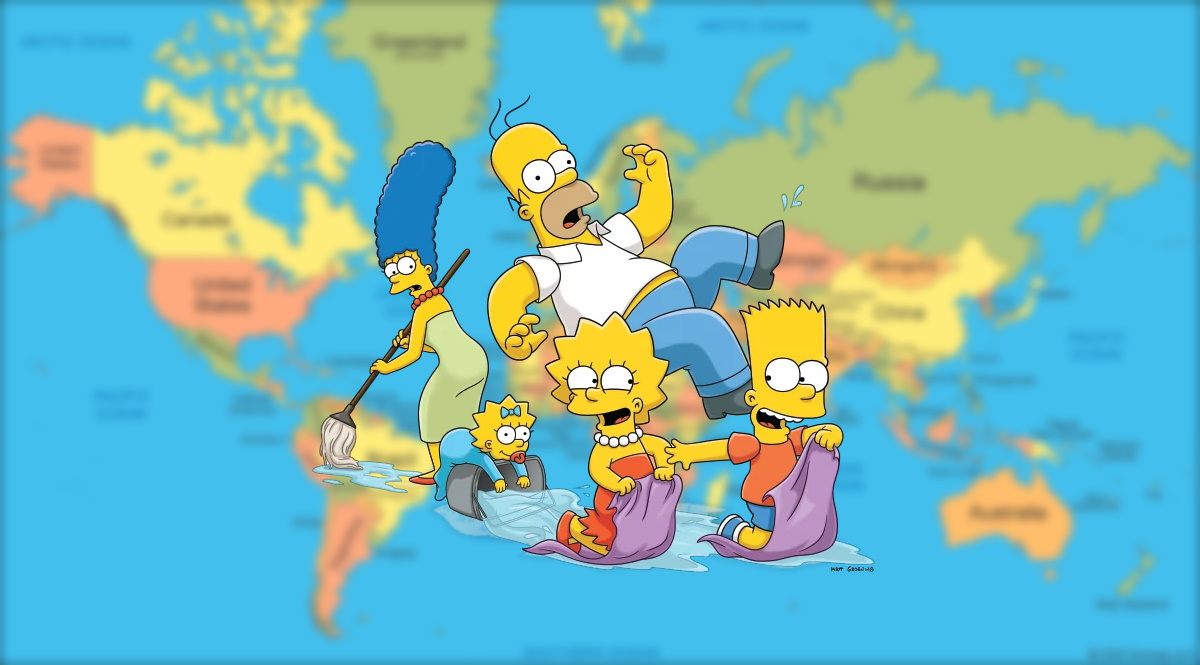| |_||_ ( )
the simpsons ( )
folder, man! ( )
( ) ,__
suck, suck! }//{ ( ) / “
_///_ | | (_ _ _ ) | |
_///_ ,, ,,/_ (.)(.) (,, ,,) (.)(.)M
,>o(,,/_ (.)(.) /_ | C |) (.)(.)) C___ |)
(.)(.) /_ /C__, @_/ (___/| /C__, @ /___/|
/c @_/ ) |/ )__| ) | __)__/|__
C_, )/ oooo / \ oooo / / /
/ |/ / \ / \ /___\ / /
—————————————————————————————————————-
Digital Cartooning
This document is done
—————————————————————————————————————-
Groening’s Guide to Digital Cartooning by Robert Abele
Robert Abele: How has the Internet changed editorial cartooning?
“You can read all sorts of cartoons on the Web. Sometimes they print them up as comic books. I think, why should I buy this? I can read it online.”
Matt Groening: When I started “Life in Hell,” I photocopied and stapled my own little issues of the comic book together and just handed it to people. I guess it was a zine, but this was before I knew of any other zines. The thing about the Internet is you have a forum for your stuff and you don’t have to pay for Xeroxing and printing. You just give people your Web address and do a Web log or cartoon blog. You can read all sorts of cartoons on the Web. Sometimes they print them up as comic books. I think, why should I buy this? I can read it online. (Laughs) I think it’s great. You can present yourself and live or die by your talents.
RA: Do you have favorite comics sites you go to?
MG: I love Daryl Cagle’s Professional Cartoonists Index on Slate.com. He’s got cartoons lined up by theme, like baby dangling. You see the same idea done by different cartoonists. Then of course Lynda Barry, I check out marlysmagazine.com. I check out The Comics Journal Web site. There’s a vituperative message board that amuses me. Also what the Internet does for me is it serves as a place to go to when something pops up in my mind. I go, “What about that comic book I read when I was ten years old and haven’t seen since?” I have a fond memory of the Katzenjammer Kids, for instance, and yes, there is a Web site devoted to the Katzenjammer Kids.
RA: Do you feel the Web has allowed certain non-establishment cartooning to flourish?
MG: Yeah, there’s all sorts of stuff out there. What I think is great, and it hasn’t quite happened yet, is that entire archives of daily comic strips that have lasted for more than 50 years could be accessed on the Net. I imagine it will happen eventually, cause I fantasize about reading every installment of the great historic comic strips. Only the tip of the iceberg has been republished in book form. I think the major syndicates should do an archive. I’d pay.
RA: What steps have you taken with your own stuff in that regard?
MG: Um … I’ve reserved mattgroening.com. (Laughs) It’s said “This Site Is Under Construction” for three years now. I’ll get around to it. I know how disappointed I am when I go to a Web site and nothing has changed, and until I’m ready to wade in on a regular basis, I’m holding back.
RA: Regarding animation, how do you feel about the hand-drawn versus computer-drawn?
MG: I think the timing is off, generally, in digital animation. Everything is too busy. Too much going on at the same time. I like the meticulous timing of classic Warner Bros. cartoons. Now it’s all about constant dazzle and movement and shifting and swaying. I find that wearisome.
RA: How has computer animation changed your TV shows?
MG: “The Simpsons” is still hand-drawn, it’s just inked and painted digitally rather than paint slathered on cells. But actual pencil drawings are scanned into the computer. With traditional animation there is an amazing history where you have the mark of brilliant artists, and what we try to do, at least on “Futurama” and now on “The Simpsons,” is have it look as much like traditional animation as we can.
RA: What do you feel is a big story in entertainment not being addressed right now?
MG: As somebody who’s a glutton for entertainment, I’m amazed that I can listen to Indian pop music on the Internet from New Delhi radio stations. Yet there are whole regions of the world that I can’t easily access [when it comes to] DVDs and television shows. I bought myself an all-region DVD player so I can watch British TV shows that aren’t broadcast over here. But you can’t play them here [without it]. I don’t know if that’s a phenomenon, but I think it’s overlooked.
RA: Fox is looking to put “The Simpsons” on everyone’s cell phones. How do you feel about that?
MG: I think the quality is pretty shoddy. (Laughs) I hope people don’t watch the show on their cell phones.
RA: How do you think technological advances have changed the way we view entertainment?
MG: I’ve noticed that people’s ability to process information is at a much higher velocity than it used to be. In looking at comedy, contemporary comedy is so much faster paced than it was even ten years ago. Watching classic sitcoms on television, I’m amazed at how leisurely paced they are. And certainly going back to older movies, like Laurel & Hardy, they’re glacial. And although I dig them, it drives the young people I’ve forced them on — for instance, my children — right up the wall. (Laughs) I think that’s a diminishing return, however, in the way commercial television is heading, the relentless insistence on holding your attention with crawls across the bottom and a little bug in the corner, and faster cuts. It just makes your eyes glaze over. What ultimately catches people’s eye and holds their attention is something that surprises them, and there’s nothing surprising about quick cuts anymore.
One of the neat things about the Web right now is you can get into it as an entertainment medium. You can go online and play games and interact with kids. I think it’s going to be a generational thing. It will take over kid culture, and people over a certain age will be completely baffled by it. My kids are very excited about online gaming, and I’m fascinated with it as a new form of storytelling. But I’m more old-fashioned and I’m more interested in the printed word, so I like going online and reading people’s personal opinions about the things they come across. However, I don’t want anyone to e-mail them to me. (Laughs) Let me find them on my own.
—————————————————————————–0———————————










